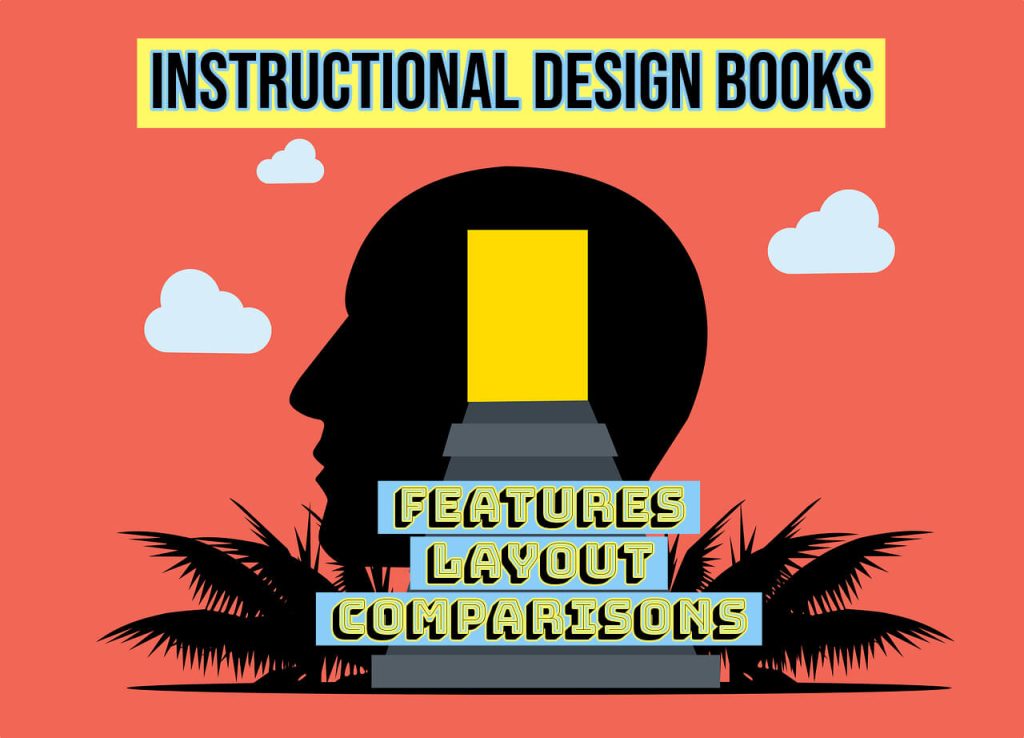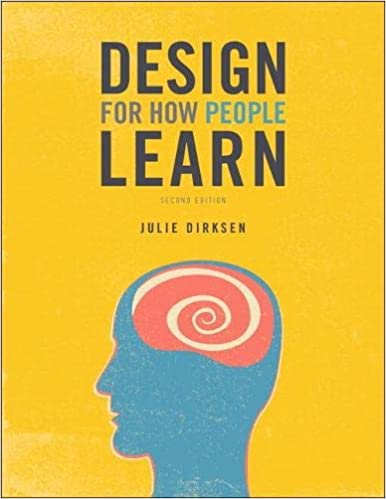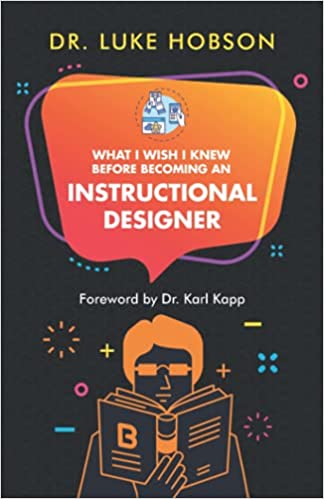Table of Contents
Today we’re looking at the best instructional design books of this year.
What is instructional design?
Instructional design is the process of creating high-quality learning materials for students.
An instructional designer is responsible for monitoring and facilitating the learning process. They often use the ADDIE method:
✅ A – analyzing the needs of learners
✅ D – determining instructional goals
✅ D – designing strategies
✅ I – implementing training
✅ E – evaluating training
This post contains affiliate links. We may receive compensation if you buy something. Read our disclosure for more details.
TLDR: Best Instructional Design Books
🔥 Best Overall 🔥
Design for How People Learn
💥 Best for Newbies 💥
What I Wish I Knew Before Becoming an Instructional Designer
💸 Best Value 💸
Learning Science for Instructional Designers
Best Instructional Design Books
Now let’s look at some of the best instructional design books for this year.
You’ll discover their:
- features
- core concepts
- layout
- comparisons
And more.
1. Design for How People Learn
↘️ Ideal for: new and experienced instructional designers
↘️ Topics covered: instructional design fundamentals
Design for How People Learn was written by instructional designer Julie Dirksen.
- Learn instructional design fundamentals
- Explore core principles
- Discover insights into how people learn
➡️ In our opinion, Design for How People Learn is one of the best instructional design books of all time.
With its easy-to-read format, you’ll find pages filled with ample examples and illustrations.
You’ll explore the core principles behind instructional design:
✅ learning
✅ memory
✅ attention
First you’ll find insights exploring how people learn and remember.

Then you’ll discover how to create materials that will enable your audience to learn (and retain) skills.
Finally, you’ll learn how to design based around habit while learning best practices surrounding learning evaluation.
… The way it is written makes it interesting, lots of graphics and examples. Some books on this topic are too academic and boring, but not this one…
– MysticMan
2 . What I Wish I Knew Before Becoming an Instructional Designer
↘️ Ideal for: new and experienced instructional designers
↘️ Topics covered: avoiding mistakes, focusing efforts
What I Wish I Knew Before Becoming an Instructional Designer is quite different than Design for How People Learn.
Instead of exploring how people learn instructional design, it is meant to teach readers how to avoid mistakes and focus their efforts on becoming better instructional designers.
- Learn what an instructional designer does
- Discover how to build a portfolio
- Learn how to make connections
➡️ What I Wish I Knew Before Becoming an Instructional Designer is perhaps one of the best instructional design books for beginners.
In the process, you’ll learn:
✅ what an instructional designer does
✅ the pros and cons of becoming an instructional designer
✅ how to build a portfolio
✅ how to make connections in the field
And much, much more.
Each chapter contains plenty of exercises.
3. Learning Science for Instructional Designers
↘️ Ideal for: instructional designer newbies
↘️ Topics covered: removing distractions, minimizing cognitive load, how learning works
Learning Science for Instructional Designers is totally different than Design for How People Learn and What I Wish I Knew Before Becoming an Instructional Designer.
Instead of learning foundations of instructional design, you’ll learn about the science behind it.
Best Value:
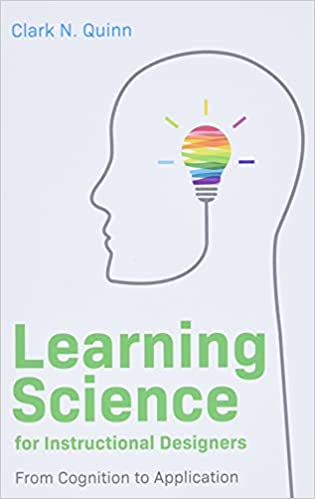
- Learn how to remove distractions
- Minimize cognitive load
- Explore the learning process
➡️ Learning Science for Instructional Designers is arguably one of the best instructional design books for designers on a budget.
You’ll learn all about how learning works, what enhances learning and what restricts it.
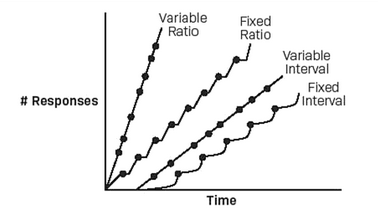
In this easy-to-read primer, you’ll learn about “good” instructional design by:
✅ removing distractions
✅ minimizing cognitive load
✅ managing information in digestible chunks
And beyond.
In addition, you’ll discover how to design learning experiences that facilitate retention.
Finally, you’ll explore ways to build learner confidence while using performance-support tools.
4. Hacking Instructional Design
↘️ Ideal for: instructional design newbies
↘️ Topics covered: instructional design hacks
Hacking Instructional Design is a bit different than Design for How People Learn. Rather than gain a deep learning of fundamentals, you’ll find yourself equipped with an instructional design hacking toolbox.
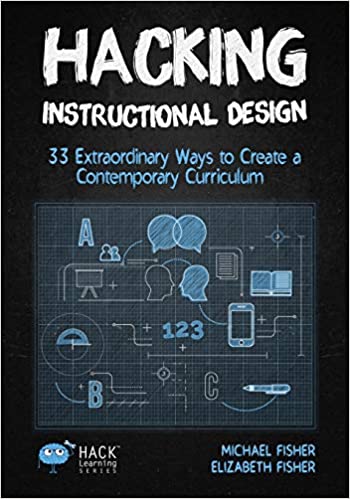
➡️ Hacking Instructional Design is perhaps one of the best instructional design books for those who want to hack the instructional design system.
Authors Michael and Elizabeth Fischer are curriculum design experts.
You’ll learn how to take your teaching strategies and:
✅ design
✅ upgrade
✅ adapt
Touching on prominent theories of education, you’ll gain the power you need to be the designer of your own curriculum:
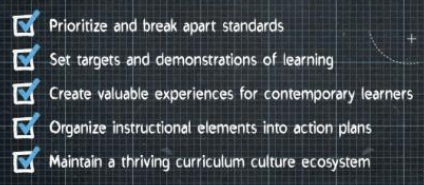
By the end of Hacking Instructional Design, you should be able to immediately apply the hacks you’ve learned to become a more effective instructional designer.
5. Course Design Formula: How to Teach Anything to Anyone Online
↘️ Ideal for: instructional design newbies, business owners, subject matter experts
↘️ Topics covered: designing online courses, psychology, learning theory, instructional design
Course Design Formula is a bit different than any other book on our list.
With this book, you’ll specifically focus on using your instructional design skills on building online courses.
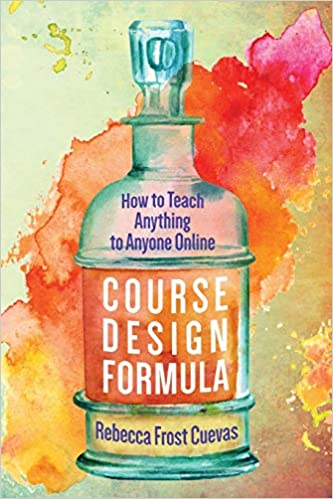
➡️ Course Design Formula is possibly one of the best instructional design books for online instructors.
In fact, it was a finalist for several awards including the 14th Annual National Indie Excellence Awards.
Using a research-based instructional design process, you’ll learn how to build a better and more effective course than the competition.
This book integrates best practices from:
✅ psychology
✅ learning theory
✅ instructional design
✅ information processing theory
And beyond.
You’ll learn from industry greats while discovering an easy-to-apply process of developing successful and transformative online courses.
… It explains how to teach online in clear practical steps…
– BB
6. Fifty Strategies to Boost Cognitive Engagement
↘️ Ideal for: instructional design newbies
↘️ Topics covered: cognitive engagement, thinking culture
This book is designed to transform your classroom into an active learning environment.
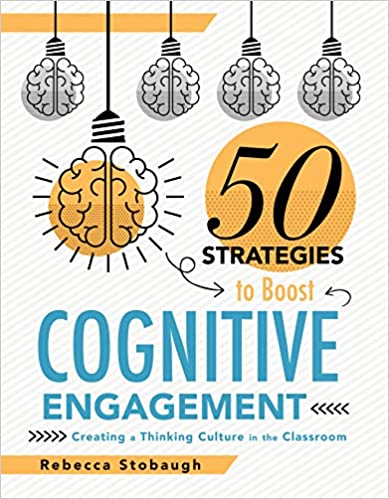
➡️ We think Fifty Strategies to Boost Cognitive Engagement is one of the best instructional design books for creating a thinking culture in a classroom setting.
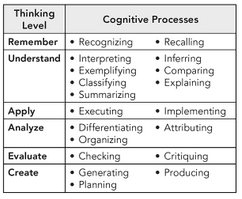
It emphasizes four key skills:
✅ critical thinking
✅ problem-solving
✅ teamwork
✅ creativity
With 50 strategies and hands-on activities, you’ll learn how to nurture cognitive development.
7. Map It: The Hands-On Guide to Strategic Training Design
↘️ Ideal for: instructional design newbies
↘️ Topics covered: creating activities, strategic training design
Map It is written by Cathy Moore, a world-renowed training designer.
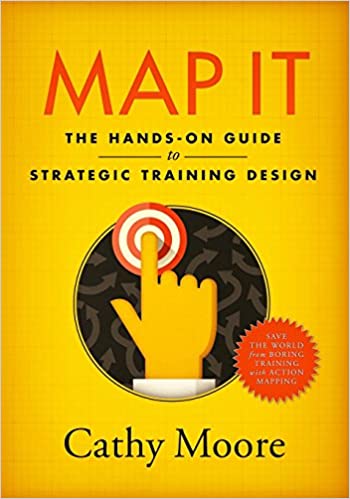
➡️ Map It is perhaps one of the best hands-on guides to strategic training design.
You’ll learn how to turn training requests into live, effective projects.
In fact, you’ll discover how to:
✅ help the client identify performance problems
✅ determine the role of training
✅ create challenging activities
✅ exhibit the improved performance of your organization
And much, much more.
With tons of hands-on examples, you’ll explore action mapping, an instructional design method created by Cathy Moore, to improve performance with targeted training.
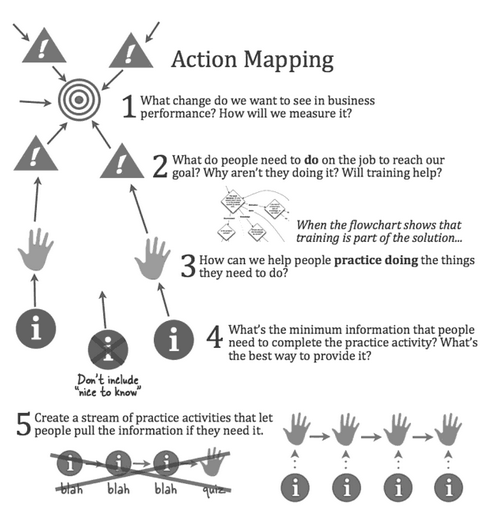
8. The Accidental Instructional Designer
↘️ Ideal for: instructional designers new to elearning, experienced practitioners
↘️ Topics covered: elearning
The Accidental Instruction Designer was written by Cammy Bean, a Solutions Consultant and Kineo. It’s similar to Course Design Formula because both are focues on elearning.
But with The Accidental Instruction Designer, its contents aren’t limited to course design.
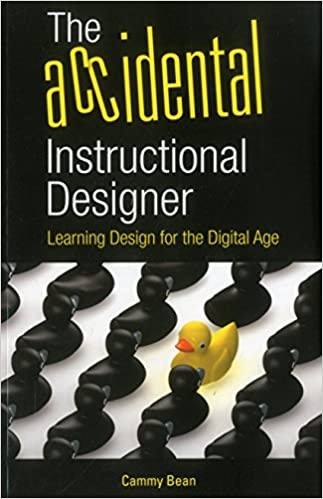
➡️ The Accidental Instructional Designer is arguably one of the best instructional design books for elearning.
Covering almost every aspect of the elearning design process, you’ll explore:
✅ instructional design
✅ building interactivity
✅ designing visuals
✅ working with Subject Matter Experts (SMEs)
And beyond.
In addition, you’ll learn how to avoid common instructional design mistakes.
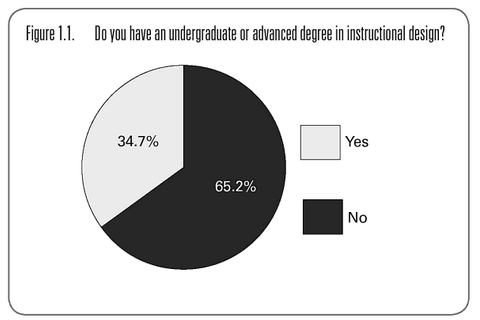
Finally, you’ll discover best practices for designing an elearning program.
Throughout the book, you’ll find case studies from other instructional designers.
9. The Essentials of Instructional Design
↘️ Ideal for: instructional design newbies, students
↘️ Topics covered: fundamental principles of instructional design
The Essentials of Instructional Design is similar to Design for How People Learn. But rather than a lay-person’s book, The Essentials is a textbook intended for students.
So the material is a little more dry and straightforward.
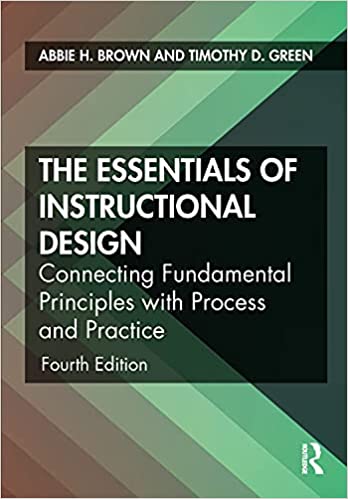
➡️ We believe The Essentials of Instructional Design is one of the best instructional design books for learning the fundamentals.
You’ll discover the core elements, principles and practices of instructional design.
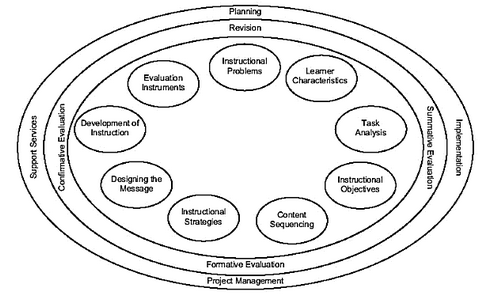
In addition, you’ll explore key procedures such as:
✅ task analysis
✅ developing goals
✅ organizing instruction
✅ developing instructional activities
✅ evaluating the success of the instructional design
And more.
Using plenty of examples, you’ll dive deep into the best-known models of instructional design.
10. Trends and Issues in Instructional Design and Technology
↘️ Ideal for: instructional design newbies, students
↘️ Topics covered: trends, historical events, strategies
Like The Essentials of Instructional Design, Trends and Issues in Instructional Design and Technology is a textbook.
But here you’ll focus on instructional design trends.
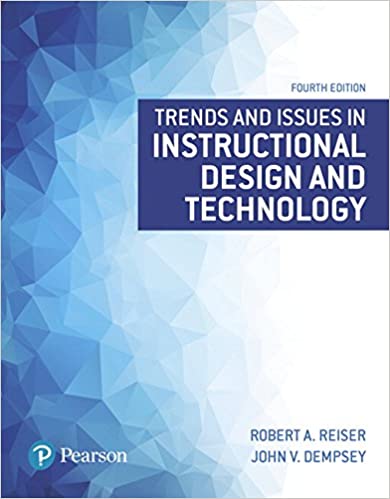
➡️ Trends and Issues in Instructional Design and Technology is perhaps one of the best instructional design books for keeping up with the modern happenings of ID.
You’ll start by examining historical events that have shaped instructional design and technology.
Then you’ll learn about theories of learning.
You’ll also discover:
✅ current practices
✅ emerging technologies
✅ strategies to improve teaching
And beyond.
Finally, you’ll learn how to navigate current instructional design issues.
… It is an ideal introductory book for readers to get a glimpse of the fundamental definitions and development of instructional design and technology…
– Merida_zxy
11. The Art and Science of Training
↘️ Ideal for: artists, scientists, instructional designers
↘️ Topics covered: art, science, instructional design
The Art and Science of Training is similar to Learning Science for Instructional Designers.
But The Art and Science of Training dissects the intersection of how science and art help students learn and grow.
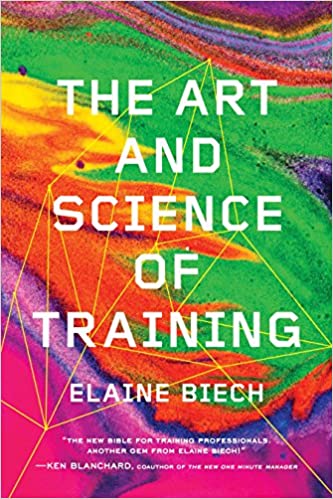
➡️ The Art and Science of Training is possibly one of the best instructional design books covering the artistic and scientific sides of instructional design.
It’s written by Elaine Biech, consultant, trainer and author of 86 books.
While exploring the science for learning and development, you’ll also discover training success arising from unplanned events.
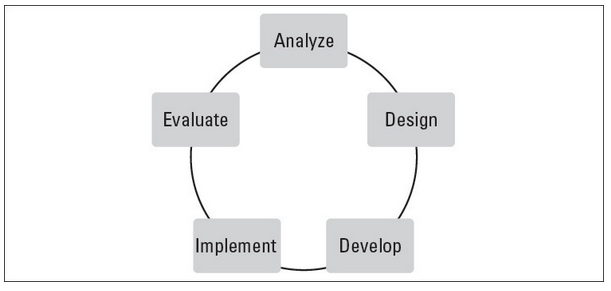
You’ll learn how to navigate different types of challenges:
✅ unwilling learners
✅ uninformed supervisors
✅ inaccurate delivery methods
✅ unmanageable performance
Then you’ll realize the importance of understanding people in order to deliver phenomenal learning experiences.
12. The Systematic Design of Instruction
↘️ Ideal for: instructional design newbies
↘️ Topics covered: front-end analysis, goal analysis, skills
Like Course Design Formula, The Systematic Design of Instruction is geared towards instructors who want to create courses in computer-based instructional design.
But rather than focusing on a specific formula, this book relies a lot more on general strategy and planning.
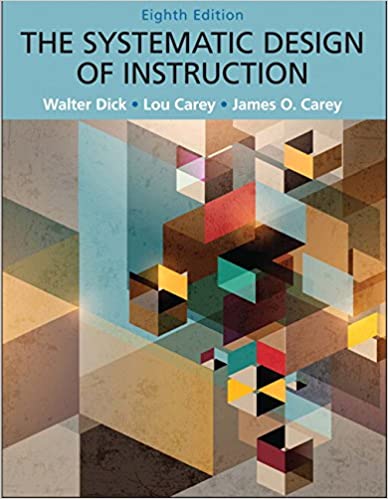
➡️ In our opinion, The Systematic Design of Instruction is one of the best instructional design books for planning instructional strategy.
This includes, but is not limited to:
✅ theoretical bases
✅ logistics and management
✅ designing and conducting
✅ revising instructional materials
And more.
You’ll start by identifying instructional goals using front-end analysis and conducting goal analysis.
Next you’ll analyze learners and context, write performance objectives and develop assessment instruments.
13. Instructional Story Design: Develop Stories That Train
↘️ Ideal for: instructional design newbies
↘️ Topics covered: instructional story design
Instructional Story Design is a bit different than any other book on our list.
That’s because you’ll learn how to develop stories to train your students.
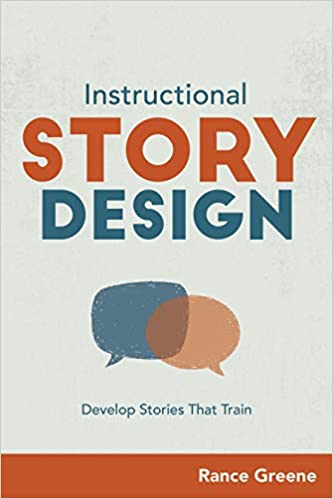
➡️ We think Instructional Story Design is one of the best instructional design books focusing on stories to develop curriculum.
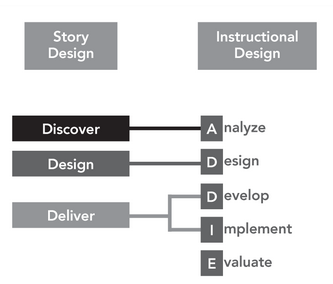
In this practical guide, you’ll learn how to:
✅ sharpen your analysis skills
✅ design relatable stories
✅ use tools to develop captivating stories
Then you’ll discover how to implement your instructional story.
In the process, you’ll find case studies from Pizza Hut, Southwest Airlines and Pepsi.
14. Mastering the Instructional Design Process: A Systematic Approach
↘️ Ideal for: experienced instructional designers
↘️ Topics covered: human performance, analyzation, performance objectives
Mastering the Instructional Design Process is a bit different than any other book on our list so far.
That’s because it’s designed for more experienced instructional designers.
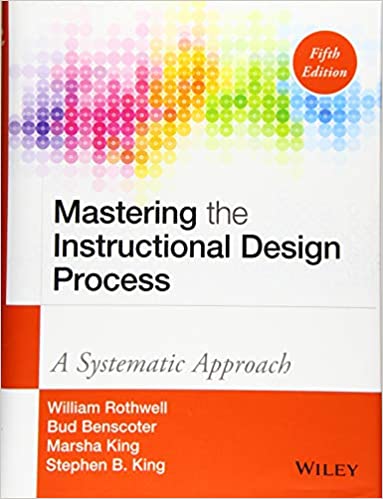
➡️ Mastering the Instructional Design Process is perhaps one of the best instructional design books for taking your skills to the next level.
With step-by-step guidance, you’ll learn how to design and develop a training programming that’s both effective and engaging.
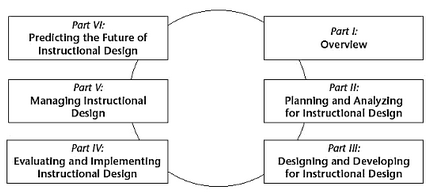
You’ll approach instructional design from a practical perspective while exploring:
✅ design templates
✅ lecture notes
✅ PowerPoint slides
✅ test banks
And beyond.
In the process, you’ll solve human performance problems while analyzing needs and establishing performance objectives.
Finally, you’ll learn how to instruct in a variety of settings.
15. Designing for Modern Learning
↘️ Ideal for: learning and development professionals
↘️ Topics covered: OK-LCD Model
Design for Modern Learning goes beyond the ADDIE and SAM methods used for teaching instructional design in other books.
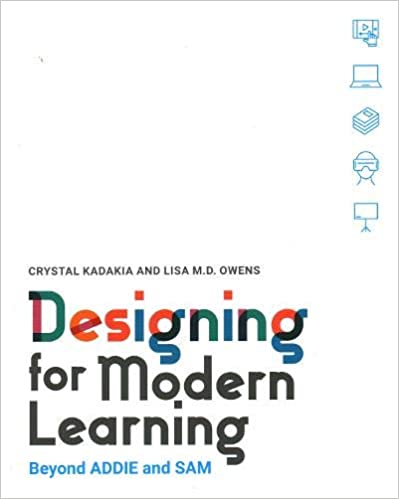
➡️ In our opinion, Designing for Modern Learning is one of the best instructional design books for learning about the OK-LCD Model.
Catering to the digital revolution, you’ll learn about the five-step Owens-Kadakia Learning Cluster Design Model (OK-LCD Model) used for training design.
✅ C – change on-the-job behavior
✅ L – learner-to-learner differences
✅ U – upgrade existing assets
✅ S – surround learning with meaningful assets
✅ T-er – track transformation of everyone’s results
You’ll read stories from business leaders and professionals who have adopted the OK-LCD model.
You’ll also find features, tools and tips.
16. Instructional Design for eLearning
↘️ Ideal for: online course instructors
↘️ Topics covered: creating elearning courses
Instructional Design for eLearning is similar to Course Design Formula because both teach you how to create elearning courses.
However, this book contains a lot more case studies.
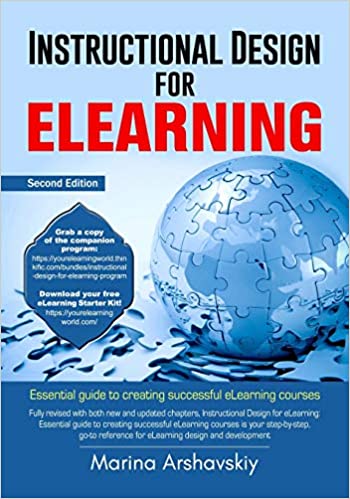
➡️ Instructional Design for eLearning is perhaps one of the best instructional design books for creating online courses.
This step-by-step book is a go-to reference for eLearning design and development.
It’s packed with content like:
✅ case studies
✅ examples
✅ practice exercises
✅ assessments
And more.
In addition, you’ll find templates you can apply to your course design.
… Solid information every instructional designer should know…
– T. Havens
17. Agile for Instructional Designers
↘️ Ideal for: experienced instructional designers
↘️ Topics covered: Agile
Agile for Instructional Designers is the only book on our list that focuses exclusively on Agile development.
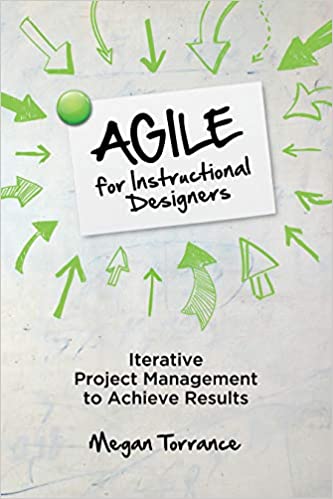
➡️ Agile for Instructional Designers is one of our favorite instructional design books to learn Agile methodology.
Agile development is popular for project management in the world of software development.
But when it’s applied to instructional design, it delivers a framework for adapting to change based on your learners’ needs.
As a result, you’ll use Agile to manage training projects.
Throughout the book, you’ll find templates for:
✅ goal alignment
✅ planning
And much, much more.
18. ISD From the Ground Up
↘️ Ideal for: new and experienced instructional designers
↘️ Topics covered: basic and advanced instructional design concepts
ISD From the Ground Up is a practical, comprehensive guide to key instructional design practices.
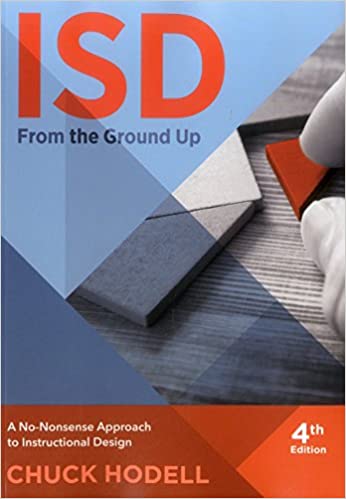
Considered by many to be a staple in instructional design, this book will help you build foundational skills.
And its in-depth tutorials will help experienced instructional designers up their game.
You’ll get a refresher on:
✅ objectives
✅ design plans
✅ lesson plans
✅ facilitating a focus group
And beyond.
19. The ID CaseBook: Case Studies in Instructional Design
↘️ Ideal for: instructional designers of all levels
↘️ Topics covered: instructional design case studies
The ID Casebook is different than any other book on our list because it focuses exclusively on case studies in instructional design.
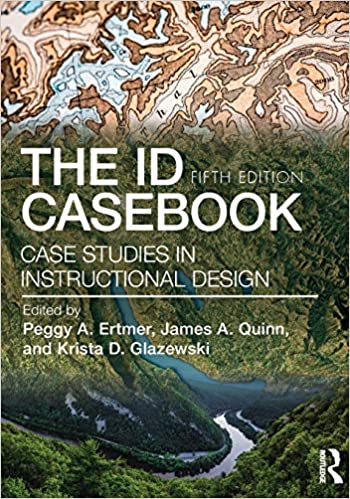
There are 26 open-ended case studies where you can problem-solve through all stages of the instructional design process.
After learning about case-based reasoning, you’ll find three sections with cases catering to:
✅ K-12 students
✅ post-secondary students
✅ corporate clients
Then you’ll explore accompanying questions encouraging students to analyze the available information and develop action plans.
Best Instructional Design Books: Conclusion
Today we looked at the best instructional design books including:
🔥 Best Overall 🔥
Design for How People Learn
💥 Best for Newbies 💥
What I Wish I Knew Before Becoming an Instructional Designer
💸 Best Value 💸
Learning Science for Instructional Designers
So whether you’re just getting started or are an experienced instructional designer, we think there is a book for just about everyone.
Readers of Best Instructional Design Books are also reading:
What are the best instructional design books?
In our opinion, the best instructional design book overall is Design for How People Learn. For instructional design newbies, we like What I Wish I Knew Before Becoming and Instructional Designer. And for best value, we think Learning Science for Instructional Designers is the way to go. Learn more about these and other instructional design books in today’s post.
What is instructional design?
Instructional design is the process of creating high-quality learning materials for students. An instructional designer is responsible for monitoring and facilitating the learning process. They often use the ADDIE method: analyzing the needs of learners, determining instructional goals, designing strategies, implementing and evaluating training and beyond. Discover more about instructional design with the books in today’s post.
Is Design for How People Learn a good book?
Yes, we think Design for How People Learn is a good book. It was written by instructional designer Julie Dirksen. You’ll explore the core principles behind instructional design such as learning, memory and attention. Then you’ll discover how to create materials that will enable your audience to learn (and retain) skills. Finally, you’ll learn how to design based around habit while learning best practices surrounding learning evaluation. Learn more about this and other instructional design books in today’s article.
Is Hacking Instructional Design worth it?
Yes, we think Hacking Instructional Design is worth it. Rather than gain a deep learning of fundamentals, you’ll find yourself equipped with an instructional design hacking toolbox. Authors Michael and Elizabeth Fischer are curriculum design experts. Touching on prominent theories of education, you’ll gain the power you need to be the designer of your own curriculum. Explore this and other instructional design books in today’s article.
